Print Page
Tuesday, February 2
| 10:30 a.m.–12:30 p.m. | "First, You Gotta Know the Melody: How ‘Faking It’ Launched My Lifelong Career in Music," Matt Treder [Solveig Holmquist], **Smith Auditorium** View Matt Treder's bio. Matt writes: The first piano ditty I ever memorized was Heart and Soul. Only after decades working as a professional musician did I realize I’d been using its unassuming insight in almost every song I play. I believed so many myths: that music is complicated and difficult; that it takes years of daily practice to achieve proficiency; that musical ability is an innate gift — you’ve either have it or you haven't. Implicit in all these was the most pernicious myth: that the study and practice of music aren't supposed to be fun. I was wrong on all counts. Take a peek behind the curtain to unearth the secrets my teacher never knew: Hidden in every genre and era lie the most beautiful, simple, and profound patterns; techniques unchanged over centuries, connecting the works of our greatest composers to the humblest of folk songs. Experience my own delight of discovery when you hear it for yourself. |
| 1:30 – 3:30 p.m. | "Tai Chi: Can It Reduce the Likelihood of Falls?" WU Prof. Peter Harmer [Tom Hibbard] , Ford 122 From Tom Hibbard: "I know he will be discussing his decade-long funded research on fall prevention. I expect that he will focus on Tai Chi and its potential for reducing falls." 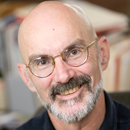
Peter Harmer is Professor of Exercise Science at Willamette University Specialties: Education: Additional Appointments: Courses: |
Thursday, February 4
| 10:30 a.m.–12:30 p.m. | "The Monumental Road System of the Roman Empire," Franca Hernandez, Ford 122
This mind-boggling endeavor can be considered a monument to human ingenuity as none other has been created on earth. Over 80,000 kilometers traversed the landscape from Scotland to Mesopotamia, from the Atlantic to the Red Sea, from the Alps to the Balkans, from Holland to the Sahara Desert. What set this system off from the other great roads built by ancient civilizations was its organic placement as an interconnecting transportation web that traversed the whole of the Roman Empire and the territories under its control. What also set this engineering marvel apart was its understood use as a free public system of transportation open to all. It connected major cities and small communities. It went over mountains and sometimes through mountains. Where there were rivers, the Romans built bridges of solid beauty. Where there was not enough water, Roman engineers built outstanding systems of water transportation. It functioned as a means to facilitate the flow of merchandise, people, military personnel, and public officials, not to mention its important function as a way to deliver the mail. This road system, some of the which is still in use today, is worth our attention and admiration. |
| 1:30 – 3:30 p.m. | "Fighting for Justice at Home and Abroad," Steven Wax [Kay Reichlin], Ford 122 The Legal Director of the new Oregon Innocence Project, recently retired after 31 years as Oregon’s Federal Defender, and 43 years after he tried his first case, will speak about his work on behalf of the falsely accused in Guantanamo, in national security cases in Oregon, and on behalf of inmates in Oregon’s prisons who were wrongly convicted.
|
Tuesday, February 9
| 10:30 a.m.–12:30 p.m. | "The Evolution of Willamette's Architectural and Natural Landscape," William Willingham [Tom Zook], Ford 122 Come hear public historian Dr. William F. Willingham ’66 as he shares information that he has accumulated while researching Willamette’s architectural and natural landscape for his forthcoming book on the subject. Born in Pendleton in eastern Oregon, William F. Willingham, Ph.D., is a historian and author of several books and scholarly articles. For fifteen years he served as historian with the U.S. Army Corps of Engineers in Portland, where he has been involved in cultural resources management and historic preservation. |
| 1:30 – 2:30 p.m. | "Vincent in Brixton," WU Theatre Presentation, Susan Coromel & Students [Deborah Ehlers], Ford 122 Play by Nicholas Wright | Director: Susan Coromel 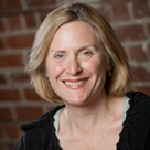
At the age of 20, Vincent van Gogh rented a room in Brixton, London, and fell in love. Based on the letters by van Gogh and his family, Wright’s play examines the heart of one of the world’s most famous and beloved artists as he tackles unexpected romance. |
| 2:30–3:30 p.m. | Robin Beerbower's Best Books of 2015, Ford 122
In a snappy and entertaining presentation, Robin will talk about the best books of the past year. Titles were chosen from a variety of sources, including Salem Library staff, patrons, critics, and of course, Robin's favorites. |
Thursday, February 11
| 10:30 a.m.–12:30 p.m. | "Antibiotics–Use and Abuse," Grant Thorsett [Don Gallagher], Ford 122 During the first hour Grant will answer the following questions. What is an antibiotic? What are their natural sources? On what infectious agents do they act? What are their modes of action? During the second hour Grant will discuss the effects of the overuse of antibiotics, and he will tell us about the industries that are to blame for the overuse of antibiotics.
|
| 1:30 – 3:30 p.m. | "Race Relations in the United States and Oregon: Past, Present and Future," Cal Henry [Mark Kasoff], Ford 122
|
Tuesday, February 16
| 10:30 a.m.–12:30 p.m. | "Memory improvement: Separating fact from fiction," Prof Jeremy Miller [Mark Kasoff], Ford 122 Memory errors are frustrating and can have serious consequences. As a result, there are a large number of strategies that have been endorsed in the popular media as pathways to better memory performance. These strategies range from drug treatments to “natural” supplements to computer programs and smart phone apps. But how effective are these methods of memory improvement? This talk will aim to summarize modern cognitive science’s attempts to separate fact from fiction with regards to claims regarding memory enhancement.
|
| 1:30 – 3:30 p.m. | "Trans Pacific Partnership: A General Overview," Russ Beaton [David Engen], Ford 122 We will discuss who is involved with the TPP and how it transpired, its general structure and a coverage of some of the key features. Of particular interest will be the role of multinational corporations and the process within our government of drafting and (possibly) accepting it. We will look at similarities with other in-place agreements, such as NAFTA and the WTO. We will discuss the pros and cons of implementing the TPP from various perspectives, and have plenty of time for open discussion.
After teaching for three years at California State College at Fullerton – now Fullerton State University, and four years at Simon Fraser University in Vancouver, British Columbia, Canada, he returned to his alma mater, Willamette University, where he taught economics and did research for 33 years. His teaching interests included Microeconomic Theory, Environmental Economics, Energy Economics, and Regional Economics and the Economy of Oregon – all courses which he developed and introduced, and which contributed directly to the issues covered in this book. His research interests have always gravitated toward useful policy efforts that have the capability of directly and immediately affecting the lives of people, even though the early training was in the purely theoretical realm. He has consulted and done policy-based contract research for at least six different agencies of the State of Oregon, in areas such as land use, agriculture, timber, transportation, energy, housing and general economic policy. Russ is co-author with Chris Maser of three books, and participated in drafting the legislation, passed by the 1973 Oregon Legislature, that created Oregon’s widely acclaimed land use planning system. He and Delana, his wife of 54 years, lived for many years on a small farm outside Salem, Oregon, where they cared for a few animals, gardened organically, and enjoyed their three children and four grandchildren. They recently re-located to a home in the Englewood neighborhood of Northeast Salem. |
Thursday, February 18
| 10:30 a.m.–12:30 p.m. | "Do these bacteria make me look, fat?" Lisa Sardinia [Tom Zook], Ford 122 Fecal transplants, probiotics, prebiotics, the “missing microbe.” The human body is made up of about 10 times more microbial cells than human cells. These trillions of microbes live in intimate association with our bodies and make up the human microbiome. These symbionts make vitamins for us, help us digest food, and battle disease-causing microbes. However, disturbances to the gut microbiome, perhaps through antibiotic overuse, have been associated with obesity, asthma and autism. The changeability of the microbiome may nevertheless provide microbiome-based treatments that focus on altering the microbiome from one that appears to be unbalanced, or not functioning optimally, to one that eradicates disease and/or restores health by changing the membership or number of microbes in a deliberate and controlled fashion.
Lisa Sardinia, PhD, JD, associate professor of biology at Pacific University, has served as Pacific’s Faculty Athletics Representative since 2003. |
| 1:30 – 2:30 p.m. | Language Video Presentation: "Language Death – The Problem," John McWhorter [Jinx Brandt], Ford 122
Our ICL host is George Burt. |
| 2:30–3:30 p.m. | Language Video Presentation: "Artificial Languages," John McWhorter [Jinx Brandt], Ford 122
There have been many attempts to create artificial languages for use by the whole world. The most successful is Esperanto. Sign languages for the deaf are also artificial languages, though ones fully equipped with grammar, nuance, and dialects.. Our ICL host is George Burt. |
Tuesday, February 23
| 10:30 a.m.–12:30 p.m. | Great Decisions: "Cuba and the U.S.," WU Professor Bill Smaldone, presenter [Jeanette Flaming], Ford 122 The U.S. announced in December 2014 that, after decades of isolation, it has begun taking major steps to normalize relations with Cuba. That announcement marks a dramatic shift away from a policy that has its roots in one of the darkest moments of the Cold War–the Cuban missile crisis. Although the U.S. trade embargo is unlikely to end any time soon, American and Cuban leaders today are trying to bring a relationship, once defined by antithetical ideologies, into the 21st century.
Bill Smaldone came to Willamette's History Department in 1991. In addition to general surveys in modern European history, he offers courses on German and Russian history, Latin American history, urban history, and the Holocaust. Education: |
| 1:30 – 3:30 p.m. | "The Mel Brown Trio: Live in Concert!" [Solveig Holmquist], ***Cone Chapel***
Brown’s accomplishments transcend local fame. He was part of the Motown Records’ stable of sidemen in the 1960s and early 1970s, and he was a member of the touring band of former Supremes lead singer Diana Ross in the 1970s and early 1980s. But the stage named for him at Jimmy Mak’s, a Portland nightclub, testifies to Brown’s definitive status in his hometown. Born and raised in Northeast Portland’s African American neighborhood, where he attended Eliott grade school and excelled at sports, Brown began learning his craft from local musicians. “When I was in high school,” he recalled in a 1981 interview, “Bobby Bradford and Cleve Williams would wait for me after school, and they’d show me how to set up certain figures with the Walter Bridges Big Band…. that kind of teaching was what everybody did … because they were helped that way themselves.” By age fifteen, Brown, a member of the Portland Junior Symphony, was teaching other students at Washington High School. He attended Portland State University on a music scholarship, continuing his classical training while playing jazz on the side with Billy Larkin and the Delegates. Their album, The Pigmy, was his first recording. While working in Vancouver, B.C., in 1967 with guitarist Tommy Chong (later a co-star of the Cheech and Chong movies), Brown was hired by Martha Reeves of the Motown group, Martha and the Vandellas (he plays on Martha and the Vandellas Live). That led to a contract with Motown Records, and Brown worked and recorded with The Temptations and other stars (The Temptations Live at the Talk of the Town; The Temptations Live at the Copacabana; TBC, with the Temptations and the Supremes; The Magnificent Seven, with the Supremes and the Four Tops; and The Bittersweet, with The Main Ingredients). Though he became a top soul drummer, Brown never achieved popular recognition. “I just work with people who are considered stars,” he said. “I have a job.” At that time, Motown did not print the names of sidemen like Brown on album covers. Brown re-established a permanent residence in Portland in 1973 and was instrumental in a resurgence of live jazz in the city. In 1979, he formed a trio with high-school-aged pianist George Mitchell and college freshman Phil Baker on bass. Soon he was taking them on tour with Diana Ross and passing on to them the history he had learned from older players. “I enjoy passing on some knowledge,” he said about the teaching that comprised a large part of his work at the time. “It was passed on to me, so it’s my job to pass it on to the younger player. … But one of the stipulations I make is that if somebody comes to a student of mine and wants some answers, I want it passed on to them.” From 1978 through the mid-1980s, Brown toured with Ross, and he owned The Mel Brown Drum Shop on Southeast Grand Ave. until 1984. He later operated a bookkeeping service, Metropolitan Accounting and Tax, while maintaining a full music schedule at night. In the 1990s, he became a member of the board of directors of the Mt. Hood Jazz Festival and began the Mel Brown Summer Jazz Workshop for student musicians. He was named to the Jazz Society of Oregon Hall of Fame in 1999 and has performed several times with the Oregon Symphony. Musically, Brown remains the most visible face of jazz in Portland. In the 1980s, he began building the Mel Brown Sextet, which performed regularly at The Hobbit in southeast Portland and reached its peak with a 1989 recording, Gordon Bleu: The Mel Brown Sextet Plays the Music of Gordon Lee, and a performance at the Playboy Jazz Festival in Los Angeles. He also began working with the legendary Los Angeles transplant and bassist Leroy Vinnegar, and developed a Hammond B-3 organ quintet that helped launch a revival of soul jazz in Portland. Brown continued using those three formats in the years that followed, primarily at Jimmy Mak’s, whose music policy he helped shape. Brown consistently employs the top players in Portland, including those with national experience and recordings of their own, such as pianist Lee, guitarist Dan Balmer, saxophonist Renato Caranto, and trumpeter Thara Memory. But he has always been the center of his groups, his smile their engaging focus. With the swing feel of classic drummers such as Jo Jones, colorful cymbal work, dramatic press rolls, and an entertainer’s sense of timing, Brown is a consummate extrovert modernist. He has appeared on many albums by Portland jazz musicians, as well as on Mister Groove (2000) and Live at Salty’s (2008). Brown lives in Portland and continues to perform and run Metropolitan Accounting and Tax. He also holds the annual Mel Brown Jazz Camp at Western Oregon University. From The Oregon Encyclopedia, Oregon Historical Society Mel will be accompanied by Tim Gilson on bass, and Jof Lee on piano. |
Thursday, February 25
| 10:30 a.m.–11:30 a.m. | Science Video Presentation "A Visual Guide to the Universe: The Rings of Enchantment," Prof. David M. Meyer [Paul Rice], Ford 122 Lecture 5
|
| 11:30 a.m.–12:30 p.m. | "When Your Old Stories No Longer Work: How I went from almost being a priest to making art about drones," Sarah Sentilles [Tom Zook] , Ford 122
Sarah Sentilles is Willamette University’s Mark and Melody Teppola Distinguished Visiting Professor at Willamette University. She will discuss her journey to becoming a scholar, with a particular focus on how she came to balance intellectual work with social justice. Professor Sentilles is a writer, scholar of religion, critical theorist, and author of three books including her recent memoir Breaking Up with God: A Love Story. She is currently working on a book about art and war titled Draw Your Weapons. She earned a bachelor's degree at Yale and master's and doctoral degrees at Harvard. At the core of her scholarship, writing, and activism is a commitment to investigating the roles language, images, and practices play in oppression, violence, social transformation, and justice movements. In 2016-17, she will be Chair of the MA in Critical Theory + Creative Research at Pacific Northwest College of Art in Portland. |
| 1:30 – 3:30 p.m. | "Weaving the Rope While Climbing It: Making a Living as a Writer in the Digital Age," Karen Karbo [Lois Rosen], Ford 122 Less than 5% of published authors make their livings as writers, but I've managed to hang in there for 25 years. This is my story!
|



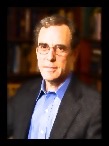 Steven Wax recently retired after 31 years as the Federal Defender for the District of Oregon to help launch Oregon’s new Innocence Project as its Legal Director. A cum laude graduate of Colgate University and Harvard Law School, he was a key part of the Brooklyn, N.Y. District Attorney's prosecution of David Berkowitz, a.k.a."The Son of Sam." Wax and his Federal Defender team successfully represented six men formerly held as "enemy combatants" in Guantanamo. He has taught at the Northwestern School of Law at Lewis and Clark College, serves as an ethics prosecutor for the Oregon State Bar, and lectures throughout the country. Wax was been honored for his work by, among other groups, the NACDL (2004 President’s Commendation), American Jewish Committee (Oregon Chapter 2007 Judge Learned Hand Award), ACLU (Oregon 2007 Civil Rights Award), Federal Bar Association (National 2010 Hon. Sarah Hughes Civil Rights Award and Oregon 2010 Hon. James M. Burns Professionalism Award), American Constitution Society (Oregon Chapter 2014 Justice Hans Linde Civil Liberties Award). He was recently given lifetime achievement awards by the Historical Society for the District of Oregon and the Oregon Criminal Defense Lawyer’s Association. Wax was invited to present the 2009 Ava Helen and Linus Pauling Memorial Peace Lecture at Oregon State University. He is a fellow in the American College of Trial Lawyers. Kafka Comes To America, Wax's book about his work representing Portland attorney Brandon Mayfield and the men in Guantanamo, has won four national awards, including the prestigious ABA Silver Gavel.
Steven Wax recently retired after 31 years as the Federal Defender for the District of Oregon to help launch Oregon’s new Innocence Project as its Legal Director. A cum laude graduate of Colgate University and Harvard Law School, he was a key part of the Brooklyn, N.Y. District Attorney's prosecution of David Berkowitz, a.k.a."The Son of Sam." Wax and his Federal Defender team successfully represented six men formerly held as "enemy combatants" in Guantanamo. He has taught at the Northwestern School of Law at Lewis and Clark College, serves as an ethics prosecutor for the Oregon State Bar, and lectures throughout the country. Wax was been honored for his work by, among other groups, the NACDL (2004 President’s Commendation), American Jewish Committee (Oregon Chapter 2007 Judge Learned Hand Award), ACLU (Oregon 2007 Civil Rights Award), Federal Bar Association (National 2010 Hon. Sarah Hughes Civil Rights Award and Oregon 2010 Hon. James M. Burns Professionalism Award), American Constitution Society (Oregon Chapter 2014 Justice Hans Linde Civil Liberties Award). He was recently given lifetime achievement awards by the Historical Society for the District of Oregon and the Oregon Criminal Defense Lawyer’s Association. Wax was invited to present the 2009 Ava Helen and Linus Pauling Memorial Peace Lecture at Oregon State University. He is a fellow in the American College of Trial Lawyers. Kafka Comes To America, Wax's book about his work representing Portland attorney Brandon Mayfield and the men in Guantanamo, has won four national awards, including the prestigious ABA Silver Gavel.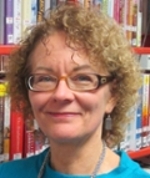 Robin Beerbower spent 41 years at Salem Public Library, and for many of those years produced an annual Best Books list. She is now retired from the Library, and is the Publisher of EarlyWord's Librarian Collection (
Robin Beerbower spent 41 years at Salem Public Library, and for many of those years produced an annual Best Books list. She is now retired from the Library, and is the Publisher of EarlyWord's Librarian Collection (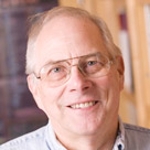 Grant Thorsett is Professor Emeritus at Willamette University and has been an ICL member since 2012. Grant earned his Ph.D. from Yale in 1969 with research interests in molecular techniques in microbial ecology.
Grant Thorsett is Professor Emeritus at Willamette University and has been an ICL member since 2012. Grant earned his Ph.D. from Yale in 1969 with research interests in molecular techniques in microbial ecology. 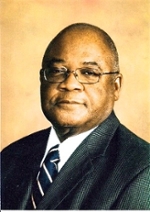 Cal Henry is the President of the Oregon Assembly for Black Affairs. The Oregon Assembly for Black Affairs (OABA), is a statewide Organization that was founded on April 9, 1977. Its purpose is to improve the political, educational, social, legal, and economic status of Blacks in Oregon. It is a nonpartisan organization and a statewide nonprofit corporation committed to improving the status of Blacks in Oregon, placing major emphasis on building a better Oregon for the Black Community. OABA knows "What Benefits Black Oregonians Benefits ALL Oregonians" and this premise does not work in reverse.
Cal Henry is the President of the Oregon Assembly for Black Affairs. The Oregon Assembly for Black Affairs (OABA), is a statewide Organization that was founded on April 9, 1977. Its purpose is to improve the political, educational, social, legal, and economic status of Blacks in Oregon. It is a nonpartisan organization and a statewide nonprofit corporation committed to improving the status of Blacks in Oregon, placing major emphasis on building a better Oregon for the Black Community. OABA knows "What Benefits Black Oregonians Benefits ALL Oregonians" and this premise does not work in reverse.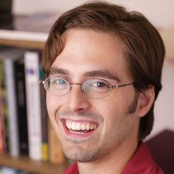 Professor Miller received a B.A. degree in Psychology from Millersville University in Pennsylvania. He completed an M.A. (2003) and a Ph.D. (2005) in Cognitive Psychology at The State University of New York at Binghamton. Professor Miller joined the faculty at Willamette University in 2005. His teaching interests include introductory psychology, cognitive processes, statistics, and research methods. His primary research area is that of human memory. Specifically, Professor Miller is interested in the interaction between memory systems and perceptual systems, and the manner in which these systems work in concert to allow the formation of representations of the physical world around us. Of particular interest to Dr. Miller is the role of perceptual fluency (the speed and ease with which we process a stimulus) in how we make memory decisions.
Professor Miller received a B.A. degree in Psychology from Millersville University in Pennsylvania. He completed an M.A. (2003) and a Ph.D. (2005) in Cognitive Psychology at The State University of New York at Binghamton. Professor Miller joined the faculty at Willamette University in 2005. His teaching interests include introductory psychology, cognitive processes, statistics, and research methods. His primary research area is that of human memory. Specifically, Professor Miller is interested in the interaction between memory systems and perceptual systems, and the manner in which these systems work in concert to allow the formation of representations of the physical world around us. Of particular interest to Dr. Miller is the role of perceptual fluency (the speed and ease with which we process a stimulus) in how we make memory decisions.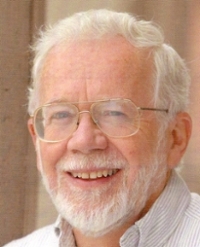 Russ received his bachelor’s degree from Willamette University in Salem, Oregon, and his Master’s and Ph.D. from Claremont University. His original training was in mathematical economics and econometrics, although his doctoral thesis was in location theory and urban land economics, which became a lifetime interest – one of his many interests in which he has no formal training.
Russ received his bachelor’s degree from Willamette University in Salem, Oregon, and his Master’s and Ph.D. from Claremont University. His original training was in mathematical economics and econometrics, although his doctoral thesis was in location theory and urban land economics, which became a lifetime interest – one of his many interests in which he has no formal training.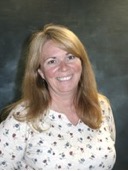
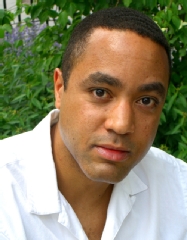 Just as there is an extinction crisis among many of the world’s animals and plants, it is estimated that 5500 of the world’s languages will no longer be spoken in 2100.
Just as there is an extinction crisis among many of the world’s animals and plants, it is estimated that 5500 of the world’s languages will no longer be spoken in 2100.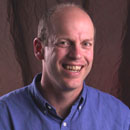
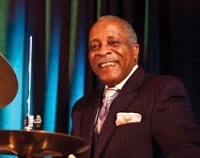 If one had to choose a single musician to represent the history of jazz in
If one had to choose a single musician to represent the history of jazz in 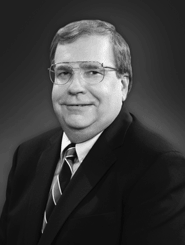 As viewed by the naked eye, Saturn doesn’t appear much different from the other points of light in the sky, except that it is much brighter than most and doesn’t twinkle as much as the stars. However, as viewed through a small telescope, Saturn is revealed as a planet with bright rings around it. What are these rings? Where did they come from? How old are they? In order to better answer these questions, the orbiting space probe Cassini began a detailed study of of Saturn’s rings and moons in 2004. It has obtained spectacular images of the rings in shadow and light from a variety of orbital perspectives with respect to the planet and the sun.
As viewed by the naked eye, Saturn doesn’t appear much different from the other points of light in the sky, except that it is much brighter than most and doesn’t twinkle as much as the stars. However, as viewed through a small telescope, Saturn is revealed as a planet with bright rings around it. What are these rings? Where did they come from? How old are they? In order to better answer these questions, the orbiting space probe Cassini began a detailed study of of Saturn’s rings and moons in 2004. It has obtained spectacular images of the rings in shadow and light from a variety of orbital perspectives with respect to the planet and the sun.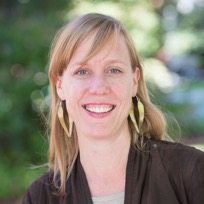
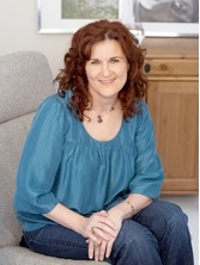 Karen Karbo is the author of multiple award-winning novels, memoirs and works of non-fiction. Recently, she was one of 24 authors selected for the inaugural Amtrak Residency.
Karen Karbo is the author of multiple award-winning novels, memoirs and works of non-fiction. Recently, she was one of 24 authors selected for the inaugural Amtrak Residency.